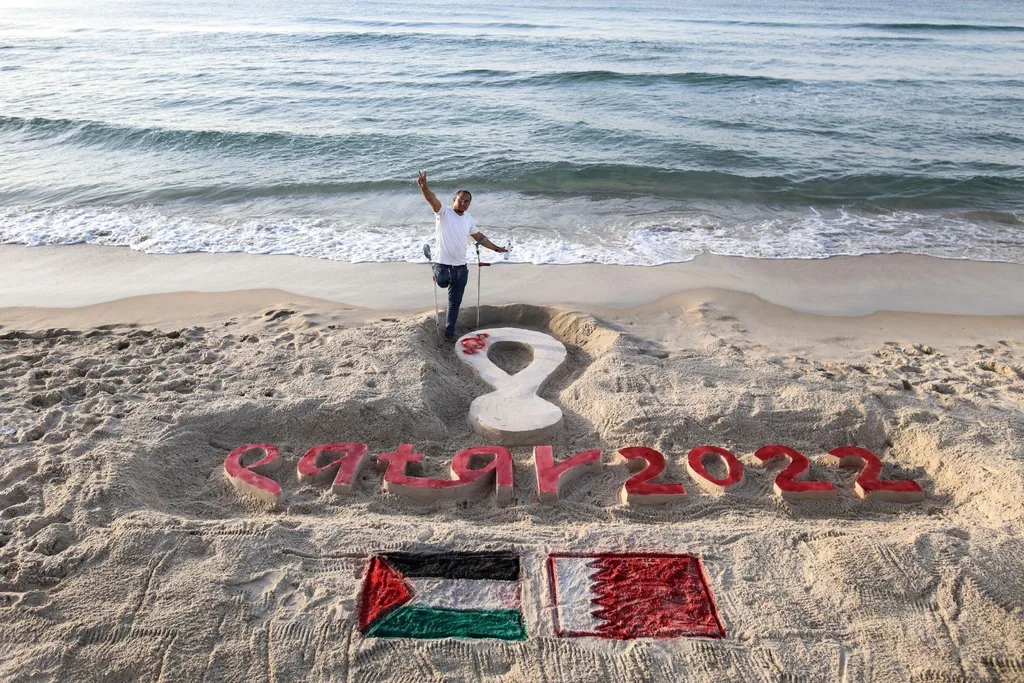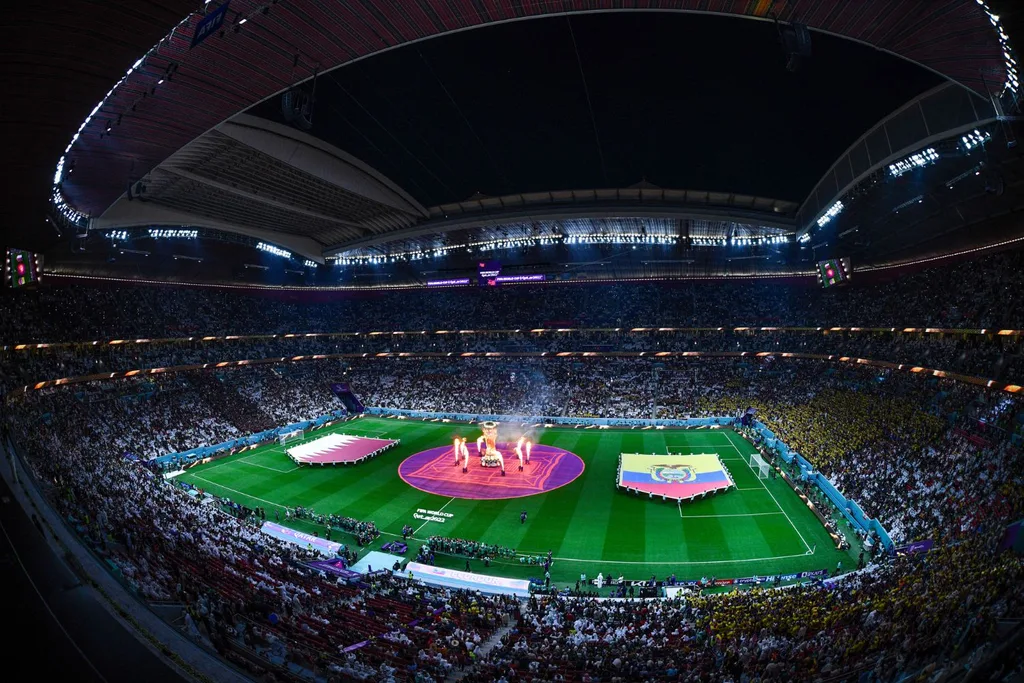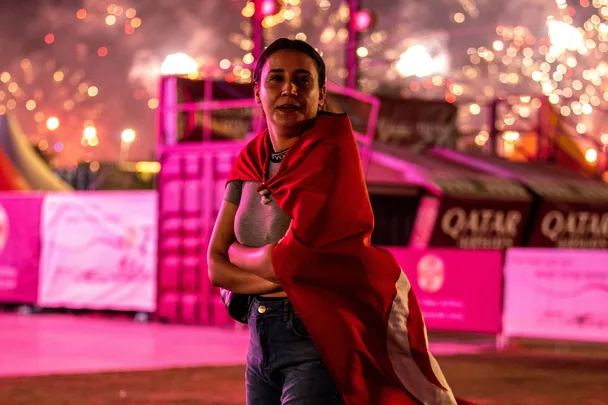Qatar’s hosting of the 2022 FIFA World Cup was a decision made back in 2010, but twelve years later, the controversy surrounding it has done nothing but increase. Of the 21 previous world cups, none have been hosted in an Arabic country, making this landmark event the first of its kind, and bringing all kinds of difficulties along with it.
After winning a ballot of FIFA’s 22 executive members at the time, Qatar beat bids from the United States, South Korea, Japan and Australia to host the tournament. Qatar’s football legacy is minimal at best, making it a controversial place to host the games from the start. Over the past decade, however, issues surrounding the deaths of migrant workers, the mistreatment of women and discrimination against the LGBTQ+ community has only heightened outrage at Qatar playing host. The Socceroos released a video in which 16-players read lines from a collective statement, condemning the tragedy suffered by migrant workers, but the team will stay play in the tournament.
Once the decision was publicised, Qatar was widely accused of paying FIFA officials £3m (AUD $5.34 million) in bribe money, but this allegation was cleared following a two-year investigation. Several of the 22 board members involved in the vote have since been accused, banned or indicted over allegations of corruption and wrongdoing, with the FBI opening several investigations. The then-FIFA president Sepp Blatter claimed the committee had decided to take football “to new lands” in an attempt to “develop football”, but has recently dubbed the decision a “mistake.”
Below, why Qatar hosting the 2022 FIFA World Cup has been so controversial from the get-go.

Why is Qatar hosting the FIFA World Cup controversial?
Deaths of migrant workers
In 2021, The Guardian reported that 6,500 migrant workers had died while working on construction for the World Cup stadiums. The findings, which were compiled from government sources, concluded that a mean average of 12 workers a week lost their lives, hailing from India, Pakistan, Nepal, Bangladesh and Sri Lanka. Since winning the rights to host the games in 2010, the nation pushed for major expansion on infrastructure, creating seven new stadiums, a new airport, roads, public transport systems, hotels and a new city.
Nick McGeehan, a director at FairSquare Projects, (an advocacy group specialising in labour rights in the Gulf), told The Guardian that it was likely that many who died, did so while working on these projects.
“A very significant proportion of the migrant workers who have died since 2011 were only in the country because Qatar won the right to host the World Cup,” he said.
Earlier this year, the Qatari government stated that according to official records, only 3 of the 37 deaths of migrant workers building World Cup stadiums between 2014 and 2020 were work related. However, in 2021, Amnesty International accused the Qatari government of attributing deaths to natural causes instead of conducting adequate investigations, making the real numbers uncertain.
In May 2022, FIFA president Gianni Infantino addressed the controversy but didn’t directly admit culpability for the associated deaths. Instead, he argued that the hiring of migrant workers gave people dignity.
“When you give work to somebody, even in hard conditions, you give him dignity and pride. It’s not charity,” he said, per the AP.
“Now 6,000 might have died in other works and so on and of course FIFA is not the police of the world or responsible for everything that happens around the world. But thanks to FIFA, thanks to football, we have been able to address the status of all the 1.5 million workers, working in Qatar.”
In a statement, the Qatari government claimed that the “mortality rate among these communities is within the expected range for the size and demographics of the population,” before adding that “every lost life is a tragedy, and no effort is spared in trying to prevent every death in our country.”
Still, despite their claims of transparency, there have been several instances which imply there are some efforts being taken to conceal the reality of the situation. Back in 2015, a group of four BBC journalists were invited to visit the country as guests of the Government, but once there, were arrested and held for two days after they attempted to report on the condition of workers in the country. Controversy surrounding the working conditions of migrants in Qatar has been continuing as recently as August 2022, when Qatari authorities arrested and deported over 60 migrant workers who protested about non-payment of wages by their employer.

Gender inequality
In 2021, Human Rights Watch released a report criticising the Qatari authorities for its discriminatory male guardianship system, which denies women the right to make major decisions affecting their lives, including accessing reproductive healthcare, deciding who to marry, freedom of travel, and being the legal primary guardian of their own children.
“Male guardianship reinforces the power and control that men have over women’s lives and choices and may foster or fuel violence, leaving women few viable options to escape abuse from their families and husbands,” said Rothna Begum, senior women’s rights researcher at Human Rights Watch.
These male guardianship rules directly violate Qatar’s constitution and international law, but are still happening nonetheless. There are currently no independent women’s rights organisations operating inside Qatar, but women are becoming more vocal about the oppression online. Still, they have little to no rights over major aspects of their lives, making it difficult, if not impossible to exercise any kind of autonomy.
LGBTQ+ Rights
Homosexuality is illegal in Qatar, with the rights of LGBTQ+ sports fans heavily shrouded in fear and confusion in the leadup to the games. People who express affection towards members of the same sex in public can face fines and up to seven years imprisonment as a result, with former FIFA president, Sepp Blatter joking in 2010 that queer football fans should “refrain” from sex during the World Cup.
Human Rights Watch have also accused security forces in Qatar of arresting and detaining LGBTQ+ people.
The night before the 2022 FIFA World Cup kicked off, Infantino delivered a highly controversial 90 minute speech, where he criticised Western nations and accused them of ‘hypocrisy.’ In it, he reflected on the prosecution of LGBTQ+ people in Europe in a bid to deflect Qatar’s controversial rules.
“How many gay people were prosecuted in Europe?” Infantino said, repeating previous comments that European countries had similar laws until recently. “Sorry, it was a process. We seem to forget.”
In protest, 7 of Europe’s 13 teams at the World Cup have stated that their captains will wear an anti-discrimination armband during play, in defiance of a FIFA rule and solidarity with a Dutch, anit-discrimination campaign called One Love.
Gianni Infantino’s speech
Along with touching on the rights of LGBTQ+ people, Infantino also criticised Western nations and accused them of ‘hypocrisy’ in his address.
“Today I feel Qatari, I feel Arab, I feel African, I feel gay, I feel disabled, I feel a migrant worker,” he began, before adding that his experiences as a son of Italian immigrants in Switzerland gave him a deep understanding of the plights of minority groups.
“Of course I am not Qatari, I am not an Arab, I am not African, I am not gay, I am not disabled. But I feel like it, because I know what it means to be discriminated [against], to be bullied, as a foreigner in a foreign country. As a child I was bullied – because I had red hair and freckles, plus I was Italian, so imagine,” he said.
Later, he praised the work of FIFA in improving working conditions by scrapping the kafala system that tied workers to employers, introducing a minimum wage and heat protections.
He also lambasted Western nations for attempting to give Qatar lessons on morality, saying: “We have been taught many lessons from Europeans and the Western world. I am European. For what we have been doing for 3,000 years around the world, we should be apologizing for the next 3,000 years before giving moral lessons.”
It didn’t take long for his speech to receive immediate, widespread backlash.
“In brushing aside legitimate human rights criticisms, Gianni Infantino is dismissing the enormous price paid by migrant workers to make his flagship tournament possible – as well as FIFA’s responsibility for it,” said Amnesty International in a statement.
Nicholas McGeehan, director of human rights research group FairSquare, accused Infantino of taking direct orders from Qatari officials.
“Infantino’s comments were as crass as they were clumsy and suggest that the Fifa president is getting his talking points directly from the Qatari authorities. Deflection and whataboutery have always been at the core of Qatar’s PR efforts to defend its rank failures, and now they have the Fifa president doing their work for them.”
Alcohol ban
Under sharia law, it is illegal to be seen drunk in public, meaning organisers have had to get creative on ways to circumvent these rules. Throughout the tournament, alcohol will only be served in designated fan parks around Doha, with specialised areas set up to allow attendees to sober up in-between games.
Infantino slammed the outrage over the lack of alcohol, telling people to tough it out.
“If this is the biggest issue we have for the World Cup then I will resign immediately and go to the beach to relax,” he joked during his speech. “I think if for three hours a day you cannot drink a beer, you will survive.










